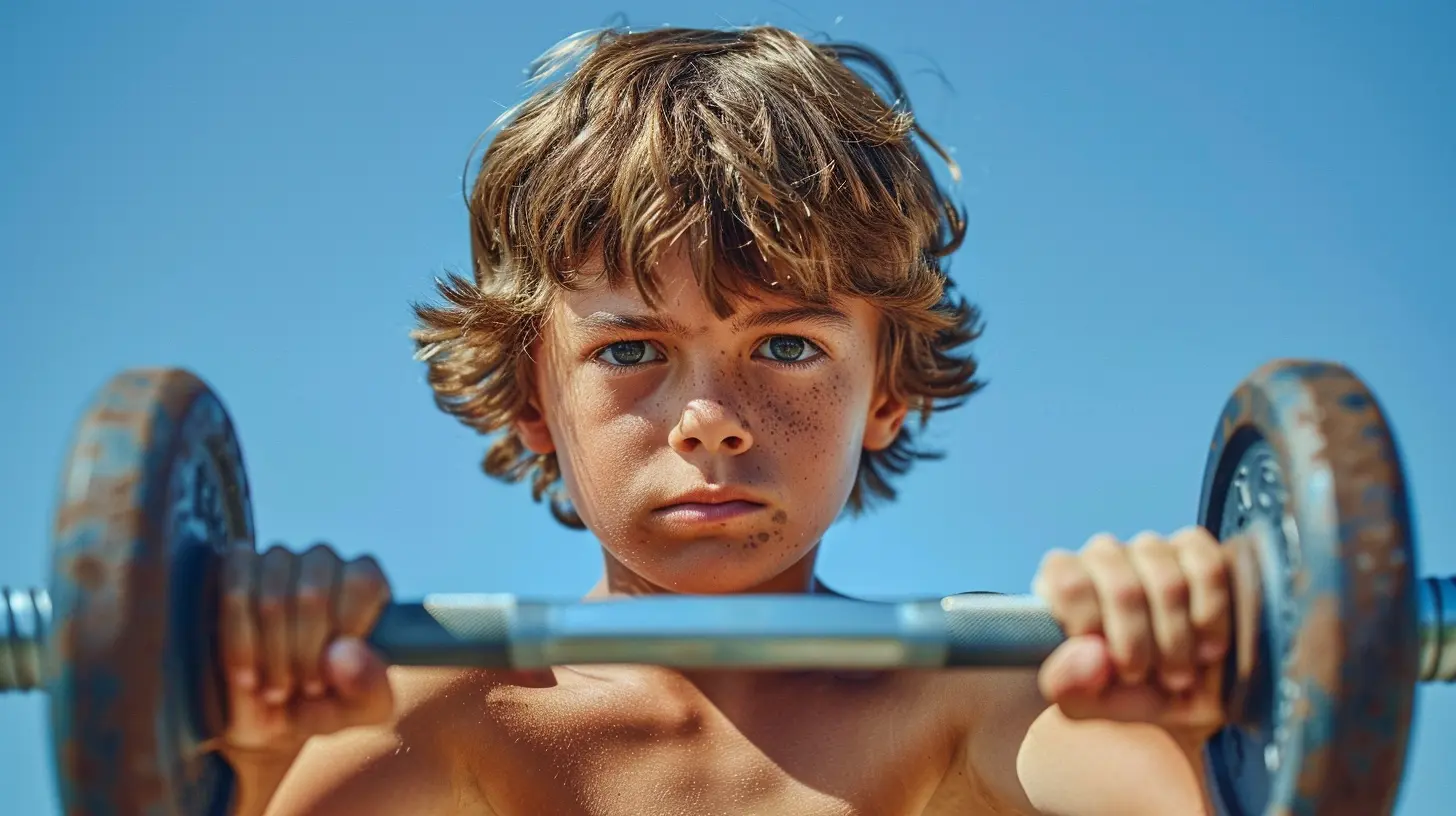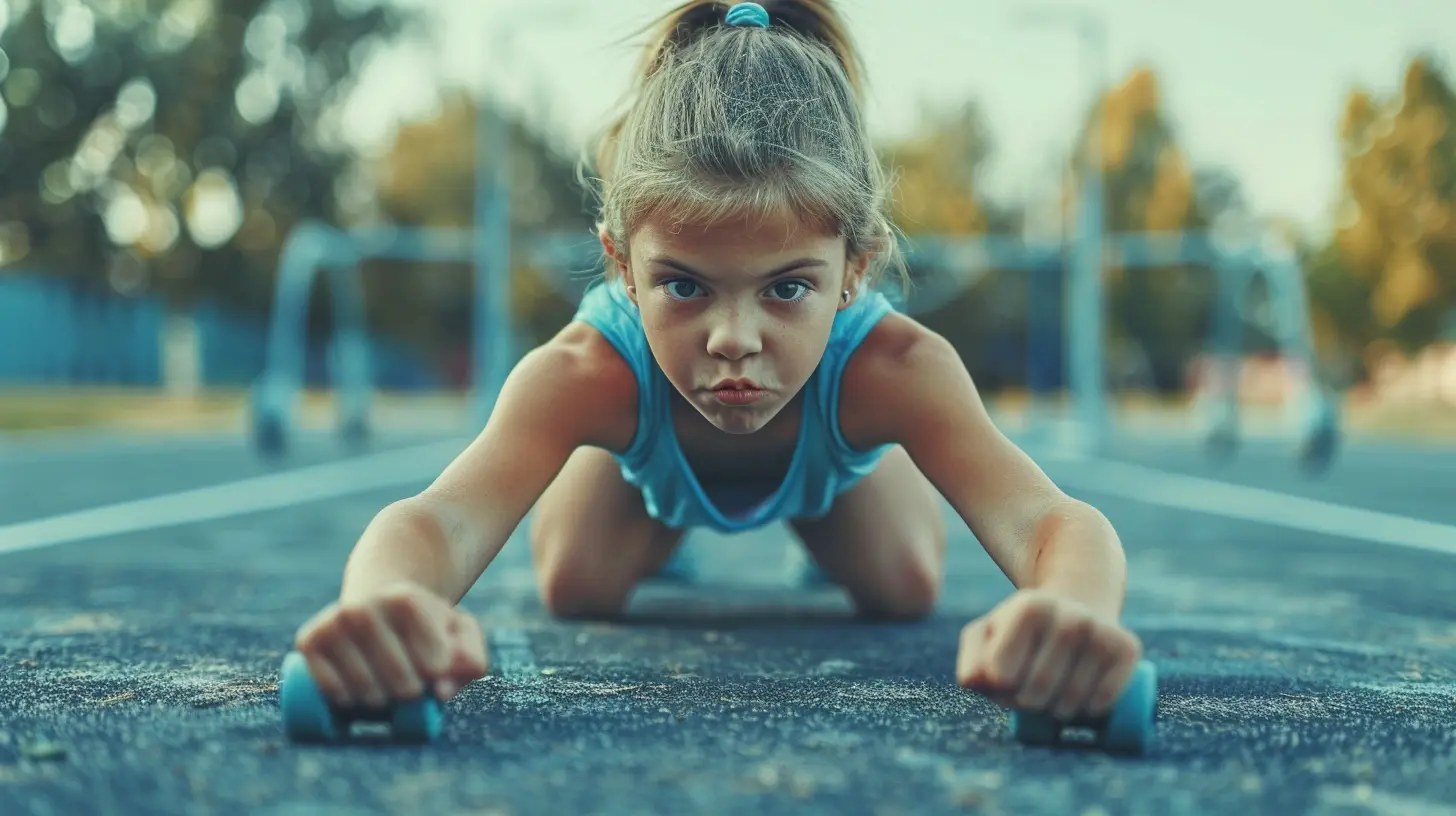Mind Over Muscle: Developing Mental Toughness in Young Athletes
27 April 2025
Ah, youth sports—where dreams of glory, muddy cleats, and halftime oranges collide. Whether it’s a soccer field, gymnastics mat, or swimming pool, young athletes everywhere are pushing their limits and chasing that next big win. But here’s the thing: building a successful athlete isn’t just about how fast they run or how high they jump. It’s about what’s happening between their ears. Yep, we’re talking about mental toughness, the unsung hero of athletic success.
Think about it: the strongest muscles in sports might just be the brain. So, how do we help our young superstars flex those mental muscles? Don’t worry. We've got you covered with some tips, tricks, and good ol’ common sense to help young athletes sharpen their mental edge.
What Exactly Is Mental Toughness?
You might hear “mental toughness” and picture a stone-cold Olympian with laser focus, unshaken by the noise around them. And you wouldn’t be entirely wrong. Mental toughness is basically an athlete’s ability to stay calm under pressure, bounce back from mistakes, and stay laser-focused on their goals.But here’s the secret sauce: it’s not something kids are born with (spoiler: they don’t pop out of the womb clutching a gold medal). It’s a skill—a teachable, learnable, and totally buildable skill. And just like push-ups or free throws, it gets stronger with practice.
Why Mental Toughness Matters More Than Ever
Have you ever watched a kid miss an easy shot and spiral into a meltdown of epic proportions? Or maybe you’ve seen a young gymnast nail their routine, only to crack under the pressure of waiting for their score? These moments show just how much sports aren’t only physical—they’re mental.Mental toughness separates the “good” from the “great.” It gives young athletes an edge when the going gets tough. Sure, raw talent is essential, but when two evenly matched kids go head-to-head, it’s the one who’s mentally tougher that usually comes out on top.
Take Serena Williams or Michael Jordan, for example. They didn’t just dominate because they were physically talented. Their mental game? Unstoppable. And that’s the kind of grit we can cultivate in today’s youth. 
The Building Blocks of Mental Toughness
1. Resilience: Bouncing Back Like a Superball
Let’s face it—failure happens. Whether it’s a missed goal or a lost game, resilience is the bread and butter of mental toughness. Think of it like a superball: the harder it hits the ground, the higher it bounces back.Encourage your kids to view setbacks as learning opportunities (easier said than done, right?). Remind them that every great athlete has failed—sometimes a lot—before they succeeded. Michael Jordan famously missed over 9,000 shots in his career. Did that stop him? Nope. Just a part of the process, my friends.
2. Focus: The Art of Tuning Out the Noise
In a world full of distractions—hello, TikTok and snack breaks—teaching young athletes to focus is no small feat. But focus is like any other skill: it takes practice.Try this: before practices or competitions, encourage your athlete to set one specific goal, like “I’ll communicate with my teammates more” or “I’ll work on my speed in the second half.” This keeps their mind locked in on the task at hand.
Pro tip? Mindfulness exercises, like deep breathing or visualization, can work wonders. (And no, it’s not just for yoga moms.)
3. Confidence: Believing You’re the Real MVP
Confidence isn’t cockiness. It’s trusting in your abilities and knowing you’ve put in the work. But let’s be real—kids don’t wake up with boatloads of confidence. It’s built over time, brick by brick.Celebrate the small wins. Did they run their fastest sprint time? Give them a high-five. Took a great shot but missed? Praise the effort. Confidence grows when kids feel supported and recognized—not just for their results but for their hustle.
4. Emotional Control: Managing the Feels
Emotions run HIGH in sports—picture a rollercoaster strapped to a rocket. There’s joy after a win, frustration after a loss, and nerves before the big game. But teaching kids to manage these emotions is key.One trick? Teach them to “name it to tame it.” If they’re nervous, encourage them to say, “I’m feeling nervous right now.” Acknowledging emotions takes away some of their power. Plus, it shows kids that feelings are normal—they don’t have to be scared of them. 
Practical Tips to Help Kids Build Mental Toughness
Let’s get into the nitty-gritty. The mental side of sports doesn’t develop overnight, but these strategies can help kids take baby (or big) steps forward:1. Set the Right Example
Kids are like sponges, soaking up everything you do—the good, the bad, and yes, even that one time you lost it at the ref. Show them what mental toughness looks like. Stay calm during games, cheer them on, and handle setbacks with grace. They'll see it, and they’ll model it.2. Teach Positive Self-Talk
Negative thoughts? Bye. Positive self-talk is a game-changer. Help your kid replace, “I’m terrible at this,” with, “I didn’t play great today, but I’m getting better.”It’s like installing a cheerleading squad in their brain. Trust me, it works wonders.
3. Encourage a Growth Mindset
This one’s straight outta the parenting playbook. Help your athlete embrace the idea that abilities aren’t fixed—they can improve with effort. When they mess up (because they will), remind them to focus on progress, not perfection.4. Use Visualization
Before a big game, have your athlete close their eyes and picture themselves succeeding. Imagine a gymnast nailing their landing or a basketball player sinking that buzzer-beater. Picture it, feel it, believe it. Visualization is like a mental dress rehearsal.5. Break It Down
Instead of focusing on the massive goal of winning a championship, break it down into smaller, more manageable chunks. Win one set. Make one good pass. One small win at a time leads to big victories.When Should You Start Teaching Mental Toughness?
Short answer? Now. Long answer? Right now.There’s no magic age or “perfect time” to start. Heck, even us grown-ups are still working on our mental toughness (ever try deep breathing in a traffic jam?). But the earlier kids start learning resilience, focus, and emotional control, the better prepared they’ll be for both sports and life.
And remember, this isn’t about raising the next Serena Williams (unless that’s their jam). It’s about helping your kids build tools that’ll serve them in school, relationships, and, well... everything.
Remember, Progress > Perfection
Building mental toughness in young athletes is a marathon, not a sprint. There will be setbacks, meltdowns, and moments of doubt (for them and you). But every step forward matters, no matter how small.So next time your kid walks off the field with their head hanging low, take a minute to remind them: Mind over muscle, always. They’ve got this. And so do you.
all images in this post were generated using AI tools
Category:
Kids And SportsAuthor:

Steven McLain
Discussion
rate this article
4 comments
Thalwen McGillivray
This article highlights the crucial balance between mental resilience and physical training, emphasizing that fostering emotional intelligence is key to young athletes' success.
May 11, 2025 at 4:49 AM

Steven McLain
Thank you for your insightful comment! I completely agree that emotional intelligence plays a vital role in developing mental toughness alongside physical training in young athletes.
Nym Wallace
Brain wins when muscles tire!
May 4, 2025 at 4:24 PM

Steven McLain
Absolutely! Mental toughness is key; the mind's resilience can push athletes beyond physical limits.
Duke McKinley
Encourage resilience by celebrating effort, not just wins. Instill a growth mindset and teach kids to embrace challenges confidently.
May 2, 2025 at 3:36 AM

Steven McLain
Thank you for your insightful comment! Celebrating effort and fostering a growth mindset are essential in helping young athletes build resilience and tackle challenges with confidence. Your emphasis on the process over just outcomes is vital for their development.
Ember Barron
Mental resilience shapes athletes; cultivate it alongside physical training.
April 30, 2025 at 4:22 PM

Steven McLain
Absolutely! Mental resilience is just as crucial as physical training for athletes. Balancing both fosters well-rounded performance and success.



